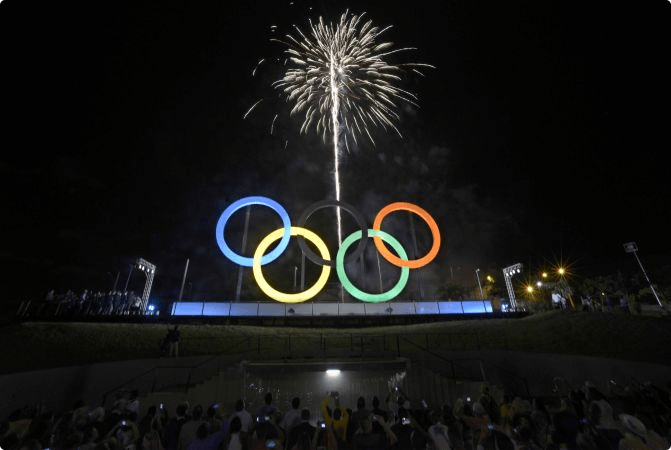In an effort to continue to promote clean competition within sports, the International Olympic Committee President Sir Craig Reedie has vowed to hold special ceremonies for any athlete at the 2016 Olympic Games that will be denied a medal because of a drug cheat because he believes it is important for clean athletes to have “their moment in the sun.”
“We are going to make sure that, when the medals are re-awarded, they are presented properly.”
For Olympians, one of the proudest moments of their lives can be standing on the podium, hearing their national anthem, watching their flag raised at the Olympic Games. This initiative by the IOC will help honor those athletes that stayed committed to their training without needing to cheat. If any Olympic medalist in 2016 is caught doping, these ceremonies will be held to honor the Athletes that were left off the podium or presented with the wrong medal.
The IOC, in conjunction with the World Anti-Doping Agency, is also funding seven research project to continue to promote clean sport. The money is coming form the $20 million that was set aside as apart of the Olympic Agenda 2020 to protect clean athletes.
An overview of the seven research projects currently being funded follows:
- Improving compliance with blood testing (Fundació Institut Mar d’Investigacions Mèdiques; Spain);
- Establishing the “intention to dope” through interviewing techniques (James Cook University; UK);
- Low-volume blood sample kits (National Measurement Institute, Australia);
- Massive expression analysis to identify doping (Spanish Olympic Committee with IMDEA Nanociencia; CEU University, HM foundation);
- Doping confrontation efficacy (University of Birmingham; UK);
- Clean Sport Bystander Intervention Programme (Leeds Beckett University; UK); and
- Development and evaluation of an anti-doping intervention app targeting the psychological variables that make an athlete susceptible to doping (Curtin University; Australia).

Does nothing to correct perhaps the worst injustice in Olympic history: give Rick DeMont his rightfully earned gold medal.
This is only slightly off-topic.
If the IOC is interested righting past wrongs, they might also consider awarding American Tim McKee a gold medal for his performance in the 400 IM at the 1972 Olympics.
McKee swam the event in 4:31.983 just two one-thousandths (0.002) of a second behind winner Gunnar Larsson’s time of 4:31.981. 1972-era touch pad technology wasn’t accurate to that level of precision (especially when different touch pads are involved), and shouldn’t have been used to determine the placing of the contestants in a race that close.
FINA seems to have agreed. They later changed the rule so that if two contestants finish within less than .01 second of each of other, they will be deemed… Read more »
Years of Plain Suck – I think going back and changing the rules after-the-fact would be a bad can of worms to open.
Perhaps. Perhaps not. Electronic timing was a shiny new toy back then. Officials gave it powers to judge placing that really weren’t warranted (down to a 0.001/second!). If contestants were both touching the SAME touch pad, that would be one thing. But they weren’t; they were touching DIFFERENT pads — and some pads were mounted slightly askew. I’m glad FINA made the rule change.
It’s interesting to note that both Larsson and McKee were credited with an OLYMPIC record for their swims in that race.
According to the rules and equipment in use at the time, McKee finished second. Whether or not the equipment was, in hindsight, fully up to the job to which it was entrusted is completely irrelevant. To change the results now would set a precedent that Olympic results are subject to future revision based on retroactive rules changes/interpretations, with no statute of limitations.
Of course, we know how pure the Olympics are (think of the judging for gymnastics and iceskating from the Soviet bloc in the 1960s, 70s, and 80s).
I will say McKee got a better deal than Lance Larson did in the men’s 100 free in 1960:
“The 1960 Olympics were held in the days prior to automatic starting pistols, automatic touch pads, and electronic timing. There was an electronic timer at Rome, but it was used as a back-up system only. Results in 1960 were decided by finish judges who relied on their eyes and did not use replays. There were three first-place judges and three second-place judges. Of the three first-place judges, they were split, 2-1, favoring… Read more »
Right thing to do. Swimmers sacrifice and work diligently for years. If denied a medal and the euphoric grace of standing on the podium, due to the cheating of other competitors, winners deserve a rightful place in the sun. Can’t wait for Rio because the depth of talent is extraordinary.
Surely Shirley invited?
https://news.google.com/newspapers?nid=1368&dat=19760729&id=P4BQAAAAIBAJ&sjid=1REEAAAAIBAJ&pg=6939,4663887&hl=en
Wow. Great find.
…and don’t call me Shirley!